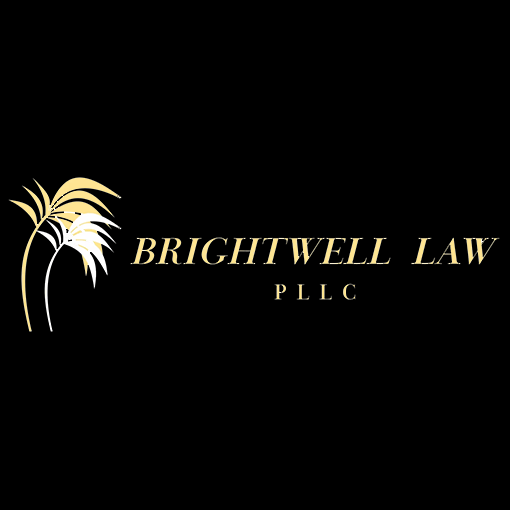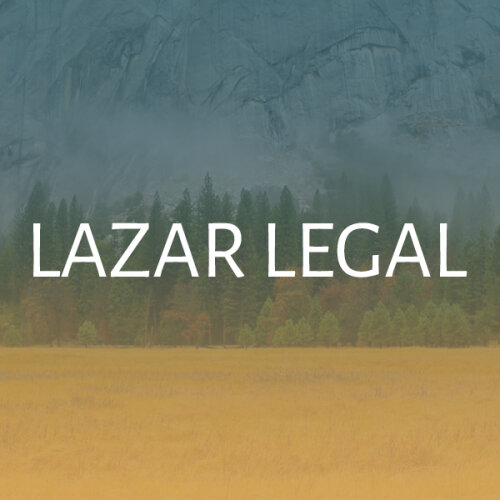Best Probate Lawyers in New York
Share your needs with us, get contacted by law firms.
Free. Takes 2 min.
Or refine your search by selecting a city:
List of the best lawyers in New York, United States
United States Probate Legal Questions answered by Lawyers
Browse our 1 legal question about Probate in United States and read the lawyer answers, or ask your own questions for free.
- My husband passed away five years ago. We have a property in th Philippines and I would like to transfer everything to my child. We are now residing in California, as U.S. citizens and my late husband a Filipino citizen.c
- How can I transfer Title on the property to my child?
-
Lawyer answer by Recososa Law Firm
Hello: We are sorry to hear about the passing of your husband, and we extend our deepest condolences. Regarding your concern, since your husband was a Filipino citizen and you are now both U.S. citizens residing in California, the property...
Read full answer
About Probate Law in New York, United States
Probate is the legal process through which a deceased person's assets are distributed, debts are paid, and property is legally transferred to heirs or beneficiaries. In New York, this process is carried out under the supervision of the Surrogate's Court. Probate typically begins when an individual passes away with a will (testate), but similar proceedings, called administration, also occur if the person died without a will (intestate). The process ensures that the deceased's wishes are honored (if there is a will), creditors are paid, and legal ownership of assets is properly transferred according to New York law.
Why You May Need a Lawyer
Probate can be a complex and emotionally challenging process, especially while coping with the loss of a loved one. A lawyer can provide critical guidance and support in various situations, including:
- Interpreting the validity and provisions of a will - Navigating disputes among beneficiaries or potential heirs - Handling significant debts or creditor claims against the estate - Managing complex assets or significant real estate holdings - Ensuring proper filing and communication with the Surrogate's Court - Addressing suspected fraud, undue influence, or contested wills - Reducing the risk of personal liability for executors or administrators - Dealing with potential tax consequences and legal obligations
Even straightforward estates can present unexpected legal challenges. A probate attorney can help smooth the process, resolve issues, and uphold the decedent's wishes in accordance with New York law.
Local Laws Overview
Probate in New York is governed mainly by the Surrogate's Court Procedure Act (SCPA) and the Estates, Powers and Trusts Law (EPTL). Notable aspects of New York probate law include:
- The process is typically handled by the Surrogate's Court in the county where the decedent resided - The executor named in a will must petition the Surrogate's Court for authority, while an administrator is appointed if there is no will - Heirs, beneficiaries, and certain family members must be officially notified - Real estate, bank accounts, personal belongings, and other assets solely in the decedent's name are generally subject to probate - Small estates (currently those valued under 50,000 dollars not including real property) may qualify for a simplified process called voluntary administration - Creditors must be given an opportunity to file claims against the estate - New York's intestacy laws govern how assets are distributed when no will exists - Probate can take several months or more depending on the estate's complexity and whether disputes arise
Certain assets such as joint accounts, retirement accounts with named beneficiaries, life insurance proceeds, and assets held in trusts may not require probate in New York.
Frequently Asked Questions
What is probate and why is it necessary?
Probate is the court-supervised process of distributing a deceased person's assets, paying debts, and transferring title to heirs or beneficiaries. It ensures that the decedent's wishes, if expressed in a valid will, are carried out and that all legal and financial responsibilities are met.
Do all estates in New York need to go through probate?
No, not all estates require probate. Small estates (under 50,000 dollars with no real estate) may go through a simplified process. Assets with designated beneficiaries or those held jointly typically bypass probate.
What happens if someone dies without a will?
If a person dies without a will (intestate) in New York, the probate court appoints an administrator and the estate is distributed according to state intestacy laws, which specify the order of priority among surviving relatives.
How long does the probate process take in New York?
The probate process can take several months to more than a year, depending on the estate's complexity, potential disputes, and court caseload. Simpler estates and small estates typically conclude much more quickly.
Who can serve as an executor in New York?
Anyone over the age of 18 who is of sound mind, and not a convicted felon, can serve as an executor in New York. Courts may disqualify individuals under certain circumstances.
How are creditors handled during probate?
Executors are required to notify potential creditors and give them an opportunity to file claims. Valid debts must be paid before distributing assets to beneficiaries.
Can probate be avoided?
Certain planning strategies, such as setting up living trusts, naming beneficiaries on accounts, and holding assets jointly, can help assets pass outside of probate. Consulting an attorney for estate planning advice can help minimize the need for probate.
What are the costs associated with probate?
Costs can include court fees, executor or administrator commissions, legal fees, and expenses for appraisals or other administrative costs. Fees generally depend on the size and complexity of the estate.
What if someone contests the will?
If a will is contested, the court will hold hearings to resolve the dispute. Common grounds for contesting include lack of capacity, undue influence, fraud, or improper execution.
How can an attorney help during probate?
An experienced probate attorney provides valuable guidance on court procedures, document preparation, dispute resolution, and ensuring compliance with New York law, helping minimize stress and reduce costly mistakes.
Additional Resources
- New York State Unified Court System, Surrogate's Court Section, provides forms, instructions, and court locations - New York State Bar Association offers public information, lawyer referral services, and helpful guides - Local county Surrogate's Court offices for procedural details and support - Legal aid organizations and pro bono resources for those who cannot afford private counsel - Community and senior centers may offer free estate planning and probate workshops
Next Steps
If you are facing the probate process in New York, start by gathering all available documents related to the decedent's assets, debts, and any existing will or trust documentation. Contact the Surrogate's Court in the decedent's county of residence for information about required forms and initial steps. Consider consulting with a qualified probate attorney, especially if the estate is large, complex, or if you anticipate conflicts among heirs or creditors. An attorney can provide tailored advice and help navigate the legal requirements with confidence and care. If you need assistance finding an attorney, reach out to the New York State Bar Association or your local Surrogate's Court for recommendations.
Lawzana helps you find the best lawyers and law firms in New York through a curated and pre-screened list of qualified legal professionals. Our platform offers rankings and detailed profiles of attorneys and law firms, allowing you to compare based on practice areas, including Probate, experience, and client feedback.
Each profile includes a description of the firm's areas of practice, client reviews, team members and partners, year of establishment, spoken languages, office locations, contact information, social media presence, and any published articles or resources. Most firms on our platform speak English and are experienced in both local and international legal matters.
Get a quote from top-rated law firms in New York, United States — quickly, securely, and without unnecessary hassle.
Disclaimer:
The information provided on this page is for general informational purposes only and does not constitute legal advice. While we strive to ensure the accuracy and relevance of the content, legal information may change over time, and interpretations of the law can vary. You should always consult with a qualified legal professional for advice specific to your situation.
We disclaim all liability for actions taken or not taken based on the content of this page. If you believe any information is incorrect or outdated, please contact us, and we will review and update it where appropriate.
Browse probate law firms by city in New York
Refine your search by selecting a city.
















